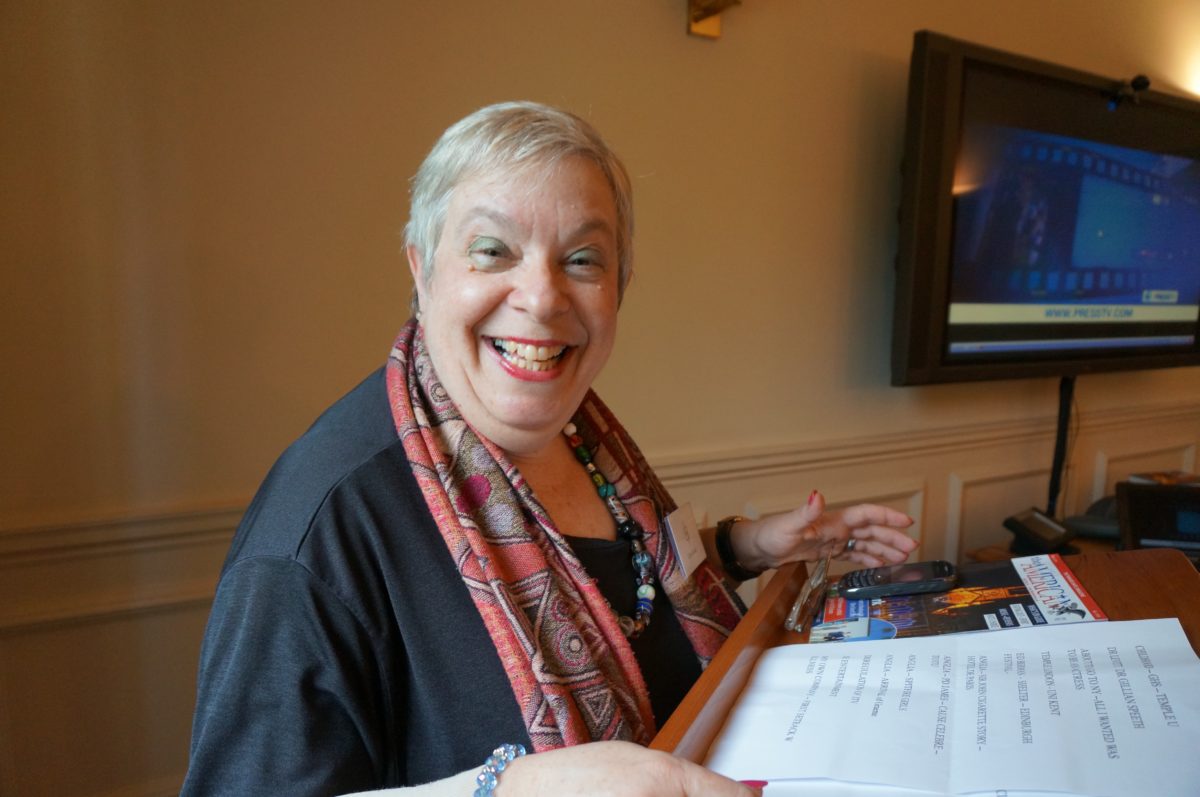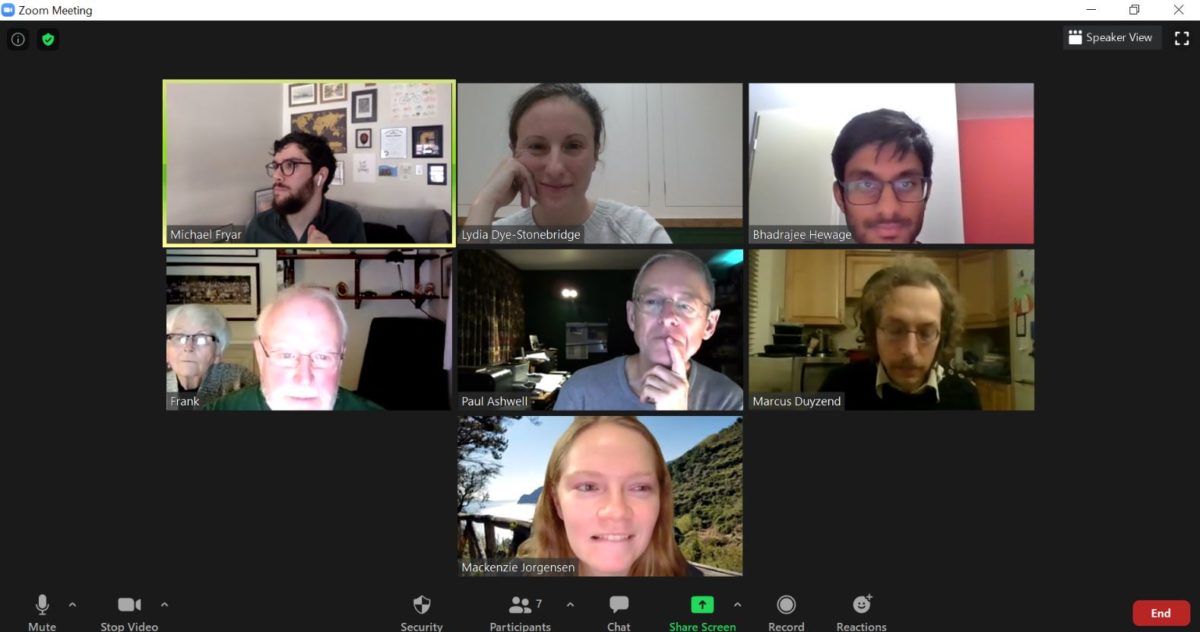By Benjamin Pontz
When ΦBK member Lydia Dye-Stonebridge was between jobs in 2013, she said she missed the “intellectual companionship” that her career offered. At the time, the Louisiana native and UNC-Chapel Hill graduate had been living in London for a decade and realized she enjoyed spending time with others who had lived or studied in America, so she looked online to see if London had a Phi Beta Kappa association. It didn’t. Undeterred, she decided to work on starting one.
A marketing professional with experience advertising and planning events, Dye-Stonebridge contacted Phi Beta Kappa’s national office in Washington, D.C., received a list of alumni who lived in the United Kingdom, and sent more than 100 postcards to members in the vicinity of London. That outreach sparked a rather enthusiastic response, and a fledgling association was born.
Dye-Stonebridge set to work planning an inaugural event: a networking social with a lecture by Carol Gould (ΦBK, Temple University), who has had a distinguished career in British television broadcasting. About 15 members came to that first event, which was hosted at UNC’s London headquarters.

“The challenge was to try to deliver something that was going to encourage people not just to come once, but to form a community,” she said. “After that first event, we had to decide where we go from here. It was a bit of trial and error to see what would interest people and get them to come along.”
When the initial energy for attending events—particularly in a city as replete with cultural, intellectual, and artistic organizations as London—inevitably began to fade, members stayed connected mostly through a newsletter.
Then, a pandemic happened. With social life ground to a halt and increasing comfort with video-conferencing platforms, the aspiring association saw an opportunity to reconnect. One previous challenge had been that with members of various ages and stages—from graduate students to nonagenarians—timing events had been tricky: some members were not comfortable traveling at night, and others were not available during the day. Moreover, virtual events allowed the association to spread its footprint beyond London and across the U.K. (which is roughly the size of Michigan).
“People were looking for ways that they could connect that maybe they were missing, having been cut off from their usual networks,” Dye-Stonebridge said.
In December 2020, the association hosted an online quiz—a trivia game—in conjunction with ΦBK’s Founder’s Day. The next activity on the docket is a book club to read the George Eliot (Mary Anne Evans) novel Middlemarch. Beyond the pandemic, Dye-Stonebridge anticipates that online events will remain a fixture of the association’s programming even once in-person activity can resume.

The London association is not alone in pursuing virtual programming, said Ann McCulloch, who manages chapter and association relations at the ΦBK national office.
“Many of our associations have really stepped up to meet this challenge and are doing great virtual programs,” she said.
For now, the London group remains a provisional association, the first of three phases for associations. It is currently the only association of its kind outside of the United States.
About her experience, Dye-Stonebridge reflected, “The biggest lesson I learned is that there is great value even in small gatherings; you do not need to host a gala dinner for 100 people to be successful.”
Already, members who met at a ΦBK London event reconnected by chance years later at a start-up in California, and even small groups offer an opportunity to build meaningful connections, she said.
Moving forward, she hopes the association will connect to the hundreds of Americans who pursue graduate study in the U.K. each year, many through the Rhodes, Marshall, and Fulbright scholarships, and also begin to do some advocacy work for Phi Beta Kappa’s values abroad.
Particularly at a time when universities are under increasing pressure to address skills gaps and promote employability, Phi Beta Kappa has a unique platform to promote holistic education.
“If you have the capacity to excel at academic study, I think you have the responsibility of integrating yourself in civic discourse to those ends,” she said. “Phi Beta Kappa stands for the best of American higher education: the freedom to think across disciplines, the responsibility for civic impact, and the opportunity to reflect democratic ideals to the rest of the world.”
ΦBK member Benjamin Pontz is a 2020 graduate of Gettysburg College who double majored in political science and public policy with a minor in music. He is currently a Fulbright Postgraduate Scholar at the University of Manchester. Gettysburg College is home to the Iota of Pennsylvania chapter of Phi Beta Kappa.




